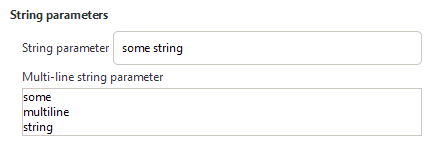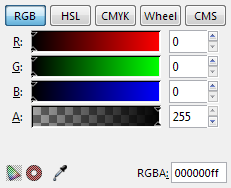Difference between revisions of "Extensions: INX widgets and parameters"
m (→gui-tip) |
(→Types: add description with appearance="header") |
||
| Line 98: | Line 98: | ||
<param name="some_name" type="description">Some text here.</param> | <param name="some_name" type="description">Some text here.</param> | ||
</pre></code> | </pre></code> | ||
|[[File:INX_sample-description.png]] | When additionally setting the attribute <code>appearance="header"</code> the text is styled as a heading. | ||
<code><pre><param name="some_name" type="description" appearance="header">Header</param></pre></code> | |||
|[[File:INX_sample-description.png]]<br><br><br><br>[[File:INX_sample-description_header.png]] | |||
|- | |- | ||
|notebook | |notebook | ||
Revision as of 21:00, 26 November 2015
Here you will find the different parameter elements you may use in your .inx files (Inkscape Extensions)
Introduction
Use parameter elements to capture user input for further use by a script. The basic structure of the element is:
<param name="some_name" type="some_type">default value</param>
The default value is the value that is shown in the input control the first time the user opens the dialog window. Inkscape automatically displays the values used last time when the dialog window is opened again.
Common attributes
type
Gives the type of parameter (int|float|string|boolean|enum|notebook|description|optiongroup|color).
name
Identifier of the parameter.
gui-text
Label of the parameter.
Not used by the notebook parameter (you can set the attribute, but it doesn't show in the dialog).
gui-description
Tooltip of the parameter.
If true, hide the parameter in the GUI (default to false).



